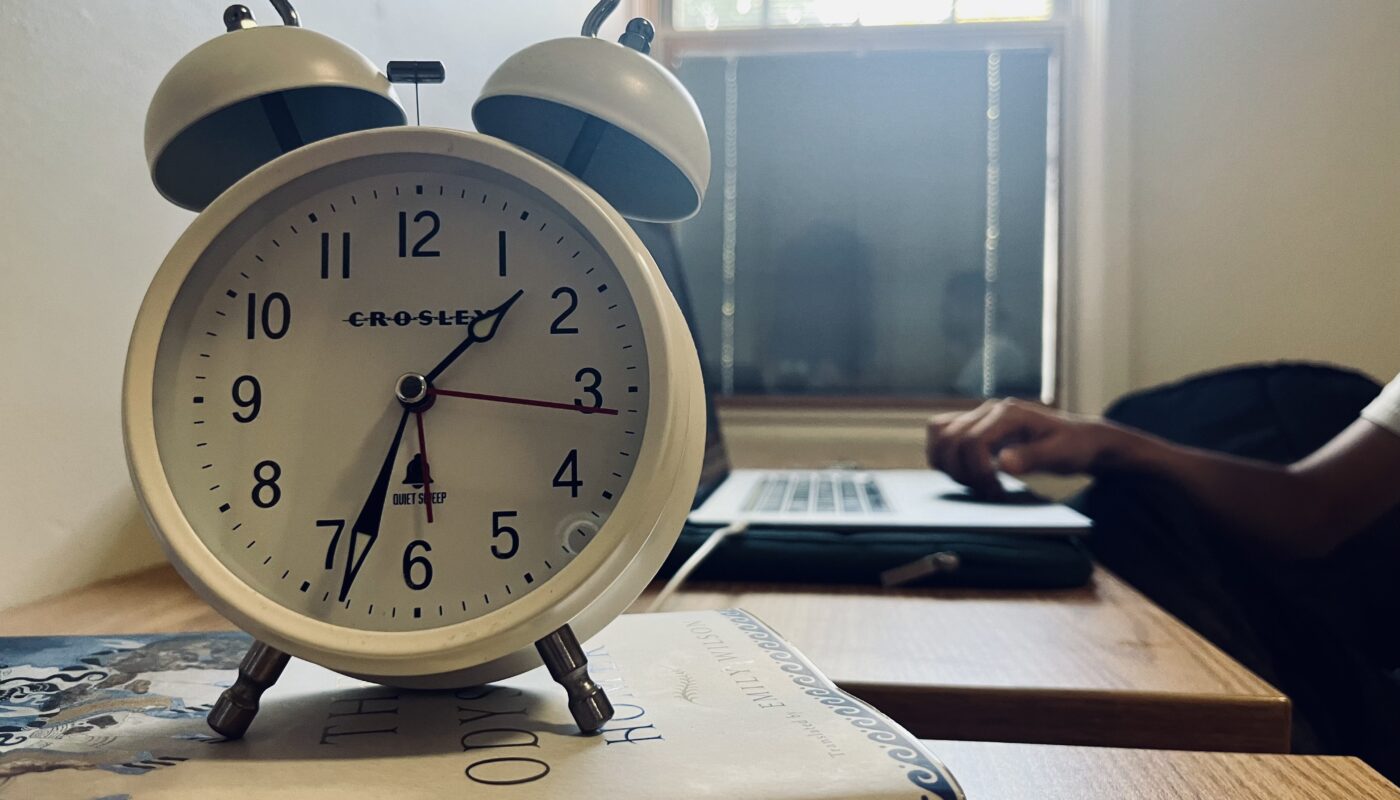There was a time when students didn’t have to skip meals, live off caffeine and minimal sleep or schedule in time to relax and socialize. Today, they find themselves in a culture where constantly being busy is the norm.
“Grind” culture and the “girlboss mentality” have pushed students to believe that if they’re not overwhelmed, they aren’t doing enough. They’ve lost sight of the fact that the point of living isn’t to work, it’s to have the time to enjoy life. Being constantly busy is not a badge of honor, it’s a societal issue that should be re-evaluated.
In my junior year of high school, I was assigned to read “The Busy Trap” by New York Times journalist, Tim Kreider. While reading the article I realized I saw myself in the words he wrote. The timing of my reading of this article ironically coincided with a stress-induced pneumonia.
Kreider said, “Idleness is not just a vacation, an indulgence or a vice; it is as indispensable to the brain as vitamin D is to the body, and deprived of it we suffer a mental affliction as disfiguring as rickets.”
This quote stayed with me as myself and many I know have become so enveloped in the world of academics, jobs and community involvement that we now face the predicament of feeling anxiety or guilt when there is a free point of the day not being used to complete assignments or handle the copious responsibilities we have.
In the article, Kreider highlighted that many are busy because of their own ambitions or anxiety, not because they have to be.
As college students, it’s an expectation that our schedule be filled with classes, jobs and any other clubs we can manage to squeeze in. When we begin to feel uneasy during times of rest, it becomes clear there is an imbalance.
Busyness has become normalized to the point there is now difficulty recognizing its harmful effects on our mental health and well-being. It’s hard to express exhaustion and burnout when everyone else is experiencing the same.
To clarify, working hard is not inherently bad. Many are busy out of necessity – juggling multiple jobs to make ends meet or managing their lives in ways that are essential. This article is not intended to diminish these efforts; rather to be a wake up call to those drawn to busyness in pursuit of a status symbol. If students’ sense of self-worth stems from how in demand they are, they should realign their priorities.
Busyness does not need to be the source of “existential reassurance.” Value isn’t tied to how many classes, meetings or extracurriculars students are able to fit into the day. Whether hustling between a list of commitments or enjoying a movie in bed with a cup of tea, a student’s worth remains the same.
Being busy isn’t a flex and it never should have been.


